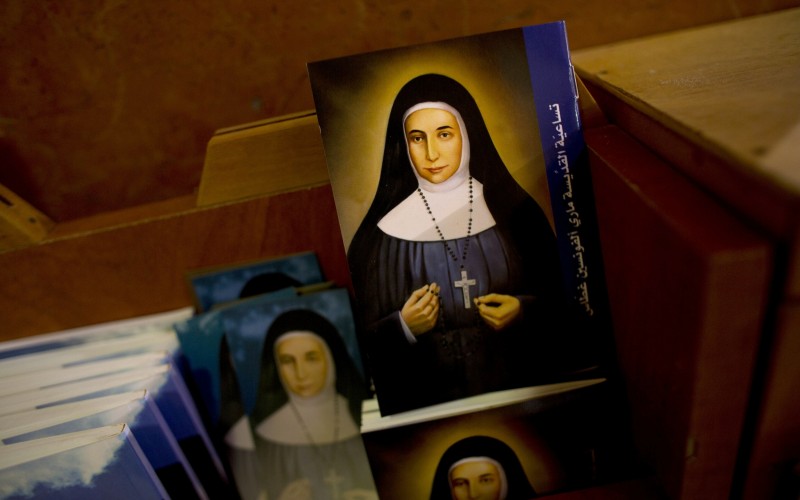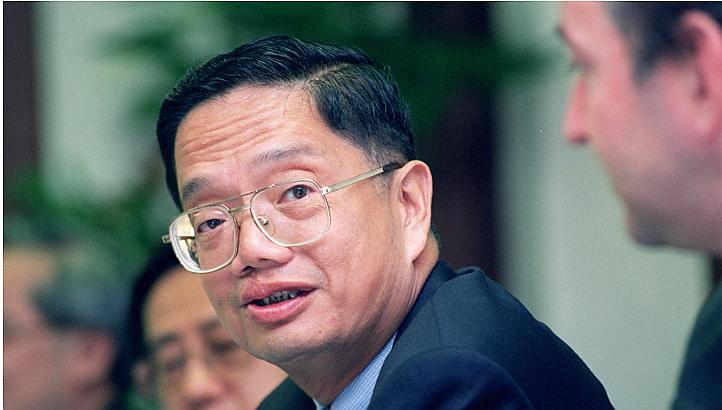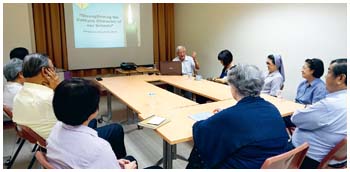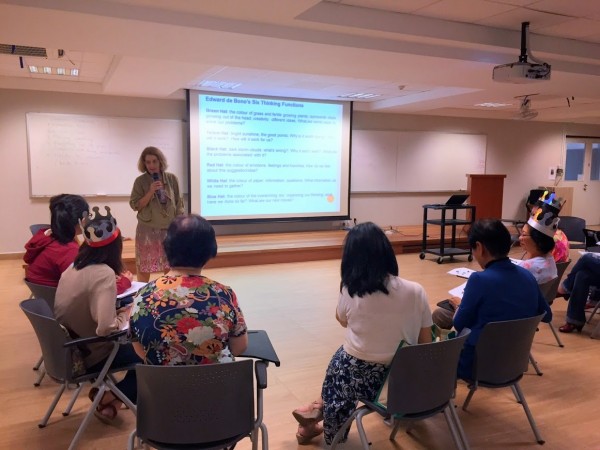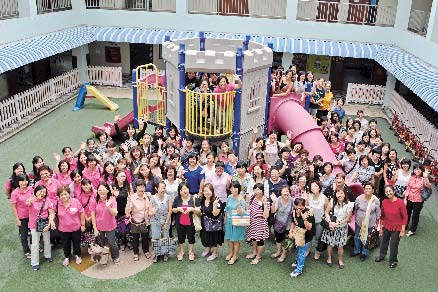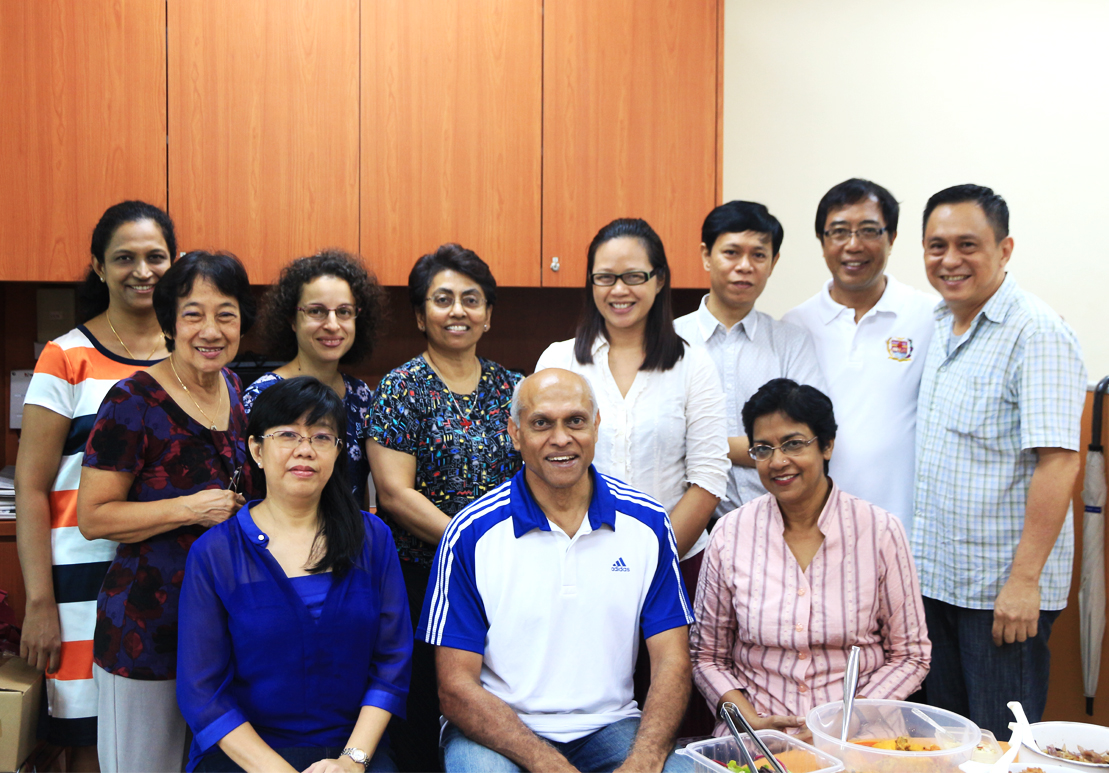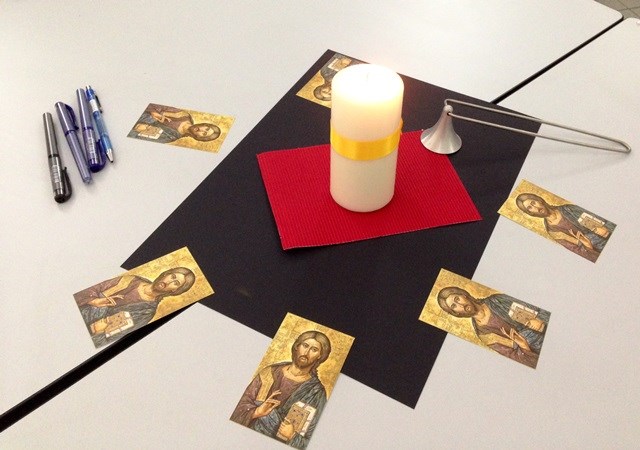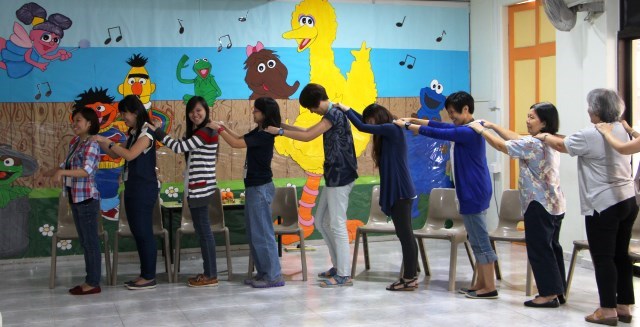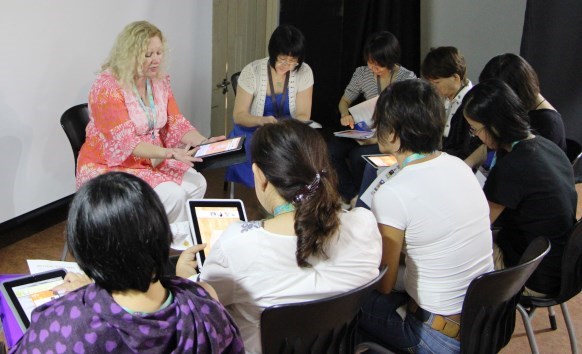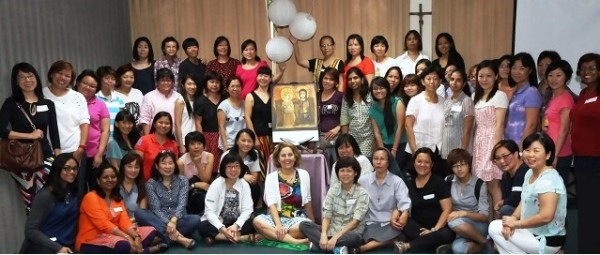Social behaviour and values are not innate in children but must be intentionally taught by adults who deliberately model them and use the learning environment and its systems and routines to scaffold and support their learning. Learning appropriate social behaviour and values is fundamental to the well-being and to the academic achievement of children. How can preschool educators turn positive social behaviours into a habit for their pupils? How can Primary and Secondary teachers support the character development of their students and help them internalise the values that are set out by the Ministry of Education in the Character and Citizenship Education Curriculum (Respect, Responsibility, Resilience, Integrity, Care, Harmony)?
These were the foci of a series of workshops for Catholic School and Preschool educators, conducted by Dr Margaret Carter and organised by the Archdiocesan Commission for Catholic Schools (ACCS).
Dr. Carter, who is a Senior Lecturer in Education at James Cook University, Australia, is a behaviour-change specialist currently based in Queensland. She has worked for profit and non-profit community agencies, education systems, regional indigenous and non-indigenous groups and individuals on social and emotional well-being and behaviour change for children and adults. Dr. Carter has published many books on children’s and young people’s social behaviour and is familiar with the Singapore educational environment, having spent two and a half years in Singapore (until June 2013) lecturing for James Cook University, Singapore (subject coordinator and lecturer for their Master of Education; Master of Guidance and Counselling; Graduate Certificate Career Development; Graduate Certificate Research Methods; Graduate Certificate of Education – Academic Practice). In Australia, Dr Carter has conducted workshops for the Catholic Archdiocese of Brisbane and for the Australian Catholic University (on educational leadership and behaviour management; educational leadership and spirituality).
Dr Carter remains an invited member of both the ethics subcommittee and the clinical supervision subcommittee for the Singapore association for counselling. Her current areas of research are: Cyber bullying; Learning in the virtual world; Third culture kids; Young children’s social capacity.
The first workshop, which took place on Thursday 20th March in the Catholic Adult Education Centre, was conducted for all the educators of the two preschools belonging to the Good Shepherd Sisters (Marymount Kindergarten and Good Shepherd Convent Kindergarten), for their before- and- after- care school staff and crisis centre staff, as part of their Internal Professional Development Programme, by request of their supervisor, Tan Poh Cheng. “It’s been an excellent session: Dr Carter is engaging, experienced and relates well with the participants. The session was well planned and the concepts clearly explained and demonstrated through videos and examples” was Tan Poh Cheng’s feedback at the end of the workshop which was attended by fifty-three preschool educators.
The second workshop was open to all the educators of Catholic preschools and it was part of their Professional Development Programme for Character Education. With fifty-one participants, it followed the same structure as the one on the previous day.
During both workshops Dr Carter stressed that, when teaching values to preschool children, it is fruitless to just ‘tell’ them what to do (i.e. saying ‘use kind words!’). Adults need to model the desired value: for example, when teaching ‘respect’, adults must not assume that children have an innate understanding of the word respect or that they have necessarily experienced being treated with respect. The road to mastery starts with defining and explaining what is meant by ‘respect’, followed by role playing or modelling by the teacher, moving on to providing practice and guidance in real life contexts, followed by re-teaching whenever necessary and continued practice until the virtue is mastered. Modelling and consistency are paramount and adults must be on guard lest they themselves should be caught using unkind language towards the children.
The system of routines in place in each educational setting can either support or hinder the learning of values and social behaviour. In the second half of the workshops, participants were encouraged to examine their own preschool’s routines through role plays and, once a problem was identified, come up with solutions by pooling together ideas and wisdom with their peers. “I was enlightened to reflect on children’s behaviour by analysing within-the-child factors, our institutional and environmental factors” commented Lim Kiah Pin, from Canossian Convent Kindergarten.
One new insight for Margaret Spruyt, a teacher from Good Shepherd Convent Kindergarten, was the realisation of the power of language in dealing with children: “It is very important to use the right language (or words) to speak to young children as it may help to enhance the child’s self-esteem or destroy the child’s confidence.”
“I will try to apply what I’ve learnt during my day-to-day interaction with the children and whenever I’m teaching them” shared Ann, from Canossian Convent Kindergarten.
The two workshops for preschool educators were part of the training and support offered to all Catholic Preschools following the launch (last December) of a new Integrated Curriculum for Catholic Preschools in Singapore, written by ACCS under Dr Carter’s guidance. The new curriculum integrates the Academic core with the Character Education and the Religious Education components, under eight broad themes (for example: ‘Me and my family’, ‘Anti-bias’, ‘People at work’) and has been made available to all Catholic Preschools. The new themes for term 2, which have been fine-tuned in the light of the feedback from the trials and in consultation with the schools, were introduced by ACCS Preschools Project Director, Merilyn Dasson, during the workshops.
Given the current emphasis given by the Ministry of Education to Character and Citizenship Education in the framework of a holistic education, ACCS invited, for the first time, Primary and Secondary School educators to Dr Carter’s workshops during two dedicated sessions which took place on the 24th and the 25th of March (for Primary and Secondary School educators respectively). The workshops involved group work and sharing by three schools about how they conduct Values Education and Values in Action programmes. According to Dr Carter, it takes only one person who is passionate about values education, who starts to interact and live the experience of the values, for the rest of the school to be influenced and eventually ignited. This person, however, needs a patron (a colleague or a leader) for support. This patron might not be passionate about values education but curious and interested to provide the needed assistance.
For each of the core values of the Character and Citizenship education programme , Dr Carter started by asking the participants to brainstorm a definition, then moved on to identifying what they look like vs what they do not look like. Then, Dr Carter went through examples of how to demonstrate the value in practice and how to create an environment where this is possible. Dr Carter stressed that values don’t just happen but need to be intentionally taught and teachers need to demonstrate them conscientiously and consistently. Twenty-two Primary School Teachers and thirteen Secondary School Teachers attended the workshops.
Among them was Lesley Goonting, chaplain of CHIJ Our Lady of Good Counsel, who commented that she gained a new insight on “the critical role ‘consistency’ plays in developing and nurturing a value education experience. Its effects need to be pervasive, engage all and be aligned/cascaded at all levels, programmes and in all interactions.”
For Br Dominic Chong, chaplain and brother in residence of SJI Junior, one new insight gained from the workshop was that “we, as teachers, can only influence our pupils on Value Education to the extent that we are already practising those values; we should periodically check ourselves on how do we see our pupils…as gifts entrusted by God or just as mere digits in the classroom.”
Dr Carter’s visit to Singapore has also served the purpose of conducting interviews with the children and the parents of the preschools which have trialled the new Integrated Curriculum. Upon request by other Catholic preschools, Dr Carter has agreed to comeback to Singapore for further school visits and workshops in August.
This article was published in Catholic News, April 20, 2014, Volume 64, Number 08

